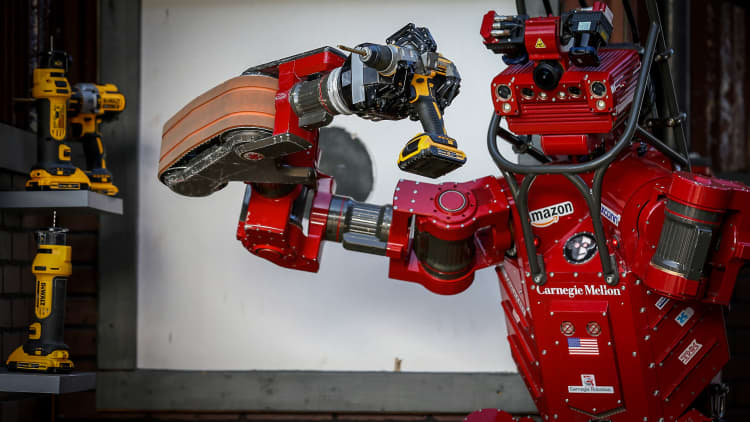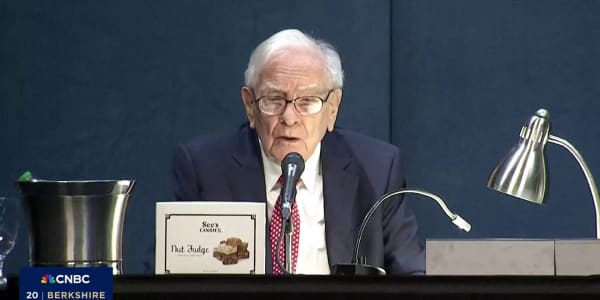From burger-flipping machines to car-building robots — not to mention high-powered software taking on more and more administrative tasks — automation is rapidly making hundreds of skills obsolete in the U.S. economy.
"Businesses are kind of looking and seeing that humans can get sick from Covid," said Marcus D. Casey, an associate professor of economics at the University of Illinois at Chicago. "Machines can't. Even if we don't see it right away, we surely see that there's going to be a move toward more automation."
A recent McKinsey study found that artificial intelligence and deep learning could add as much as $3.5 trillion to $5.8 trillion in annual value for companies. The economic shock of the coronavirus pandemic hasn't helped. In fact, Covid-19 could be accelerating the pace of automation. To put the increase in robotics in perspective, the U.S. had 0.49 robots per 1,000 workers in 1995. That number rose to 1.79 robots per 1,000 workers in 2017.
Training and education remain central to the fight against widespread job losses from technology. Both the White House and Democratic presidential nominee Joe Biden have released plans to cope with the coming wave of automation. Former Democratic presidential candidate Andrew Yang campaigned on a single issue — creating a universal basic income program to pay the millions of Americans who lose their jobs to machines in the coming decades.
"Other things being equal in the post-pandemic world, if you don't have some [information technology] skills, you're at greater risk of being disrupted," said Robert Litan, a nonresident senior fellow at the Brookings Institution. "As a society, the need to help people transition to new jobs is going to be much greater in the post-pandemic world than the one that existed just six months ago."
Watch the video above to find out how the pace of automation might increase during and after the Covid-19 pandemic and what's being done about it.
For more on tech, transformation and the future of work, join the most influential voices disrupting the next decade of work at the next CNBC @Work Summit this October.
Correction: An earlier version of this story misstated the title of Marcus Casey. He's an associate professor of economics at the University of Illinois at Chicago.







